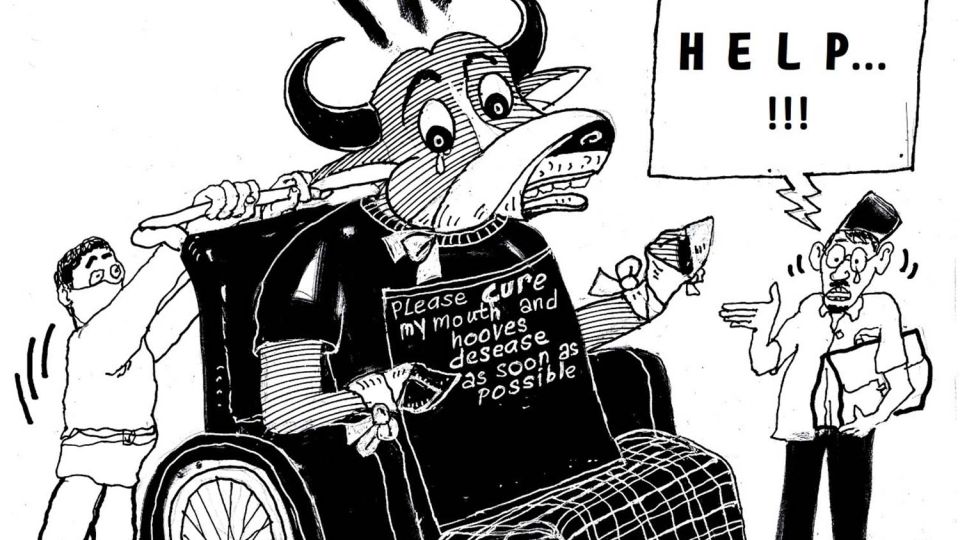June 28, 2022
JAKARTA – The country’s outbreak of foot-and-mouth disease (FMD) has spread to 19 provinces so far, affecting some 232,000 farm animals, and has come at a particularly challenging time, just ahead of Idul Adha, the Muslim Day of Sacrifice.
Demand for livestock normally spikes in the country before the holiday, which falls this year on July 9, as Muslims buy cows, goats and sheep for sacrifice.
In response to the rapid spread of the disease over the past two months, the government has barred livestock from being moved between provinces, has been quarantining and vaccinating animals and has been culling sick ones. So far more than 2,200 animals have been culled.
But the problem is far from over. As the outbreak continues, the government’s restrictions have decreased supplies of livestock and driven up prices. Live cow and buffalo prices have shot up by some 25 percent from last year’s level, to between Rp 70,000 (US$4.75) and Rp 75,000 per kilogram.
Live goat and sheep prices have increased to Rp 120,000 and Rp 80,000 per kg, respectively.
National Disaster Mitigation Agency (BNPB) head Lt. Gen. Suharyanto, who chairs the country’s FMD control task force, said the scarcity did not justify the procurement of more cattle for sacrifice, as the virus needed to be contained.
Tempering the supply shock is a wave of fear among consumers, some of whom are refraining from eating beef. This may bode ill for livestock breeders and traders. Even in areas where the cattle stock is unaffected, some industry players are worried the market will fail to absorb the Idul Adha beef supply at the previously expected prices and that things could get worse if the outbreak persists.
FMD is an infectious viral disease that affects hoofed mammals, including cows, goats and sheep. Although it is less likely to be fatal to adult animals, the disease reduces fertility, growth and milk production in cattle. It also has a major impact on trade, as meat from animals affected by FMD is banned for consumption internationally and not accepted domestically.
FMD is very unlikely to infect humans, but has done so on occasion.
The disease, which had been absent from the country for three decades, was initially reported in livestock in Gresik, East Java, in April. Now, the highest numbers of cases have been reported in East Java, West Nusa Tenggara and Aceh. No human cases have been reported.
The government has made the right call to restrict the interprovincial movement of cattle, despite the high demand. Islamic organizations and Muslim leaders should remind adherents that making an Idul Adha sacrifice is not obligatory if the animals are not available or if one’s means do not allow it.
Serious and intensive efforts to eradicate the disease must be made. Preventive measures, including improved hygiene and animal husbandry practices, should also be in place. Controls such as quarantine and culling should be imposed rigorously.
Mass culling was used to control the disease in some countries in 2001, but recent studies have criticized such policies. Researchers have found that prevention, including early detection, vaccination and killing only affected animals, is likely to be more effective.


